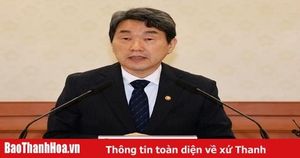Payton McNabb, once celebrated as one of North Carolina's standout high school volleyball players, found herself thrust back onto the national stage during President Donald Trump’s address to Congress on March 4, 2025. McNabb, now 19, was introduced by Trump as he declared his commitment to banning transgender athletes from competing in women’s sports. Her personal story—a tragic incident where she suffered severe injuries at the hands of a transgender opponent—has become emblematic of the broader fight over participation rights and gender identity in sports.
McNabb's ordeal began two years ago during a high school volleyball match when she was struck by a ball spiked by a transgender athlete. The impact was devastating: she was knocked unconscious for about 30 seconds and was later diagnosed with traumatic brain injury, concussion, paralysis on her right side, and vision problems. This injury not only ended her athletic career but has dramatically affected her daily life as she attends Western Carolina University.
During the joint session where she was honored, Trump recounted the details of McNabb's injury, asserting, “Three years ago, Payton McNabb was an all-star high school athlete, one of the best, preparing for her future. But after she was hit, it caused traumatic brain injury, partially paralyzing her right side and ending her career.” He continued, promising to enforce his Executive Order titled “Keeping Men Out of Women’s Sports,” which he signed last month. The order mandates federally funded K-12 schools and colleges to prohibit transgender women and girls from participating in women’s sports.
McNabb's experience has reverberated through conservative circles, spurring activism and political measures aimed at restricting transgender athletes across the United States. After testifying before voters and legislators, Payton lent her story to the campaign for state House Bill 574, which successfully banned trans girls from competing on women’s sports teams. Critics of the bill, including Democratic Governor Roy Cooper, argued it was detrimental and unnecessary, pointing out there had only been two instances between 2019 and 2023 of trans girls approved to play on girls’ teams.
On the floor of Congress, as Trump spoke, McNabb stood next to Usha Vance, the second lady, visibly moved as the President urged schools to enforce the executive order or risk losing federal funding. “Payton from now on, schools will kick men off the girls' teams or they will lose all federal funding,” Trump emphasized, underscoring his administration's commitment to this issue.
McNabb expressed gratitude for the support, sharing with Fox News, “I know President Trump really supports what we've been fighting for and what I've been advocating for over two years now... I think this is just his way of letting us know he sees us and he’s with us.” Her story has ignited conversations about the safety and fairness of integrating transgender women and girls within women's sports and has laid the foundation for national debate.
Trump's rhetoric has framed the inclusion of trans women as not only unfair but allegedly damaging to women's sports as he pointed to examples of transgender athletes outperforming their female counterparts. During his speech, he remarked on instances where he claimed the disparity was egregious, saying, “If you really want to see numbers, just take a look at what happened in women's boxing, weightlifting, track and field, swimming or cycling, where a male recently finished a long-distance race five hours and 14 minutes ahead of a woman, for a new record.” Experts have questioned his statistics, especially since the closest verified incident involved cyclist Austin Killips, who won by five minutes, not five hours.
Legislatively, Trump's actions have echoed across multiple states, aligning with the growing trend. Since 2020, 25 states have already enacted laws aimed at limiting transgender participation in sports. The urgency of these measures is often couched in claims aimed at preserving the integrity of women’s sports, yet they have faced criticism for being rooted more deeply in political ideology than empirical data. Indeed, NCAA President Mark Emmert estimated fewer than 10 transgender athletes participated at the collegiate level nationwide.
On March 3, mere days before Trump’s address, Senate Democrats narrowly blocked the “Protection of Women and Girls in Sports Act of 2025” from advancing—an indicator of the contentious nature of this topic. Senator Tommy Tuberville, speaking to The Hill, branded trans women as indicators of sports' decline, claiming without evidence, “We’re getting to the point now where women and girls’ sports are getting ready to be extinct.”
Meanwhile, McNabb remains steadfast. Despite the challenges she faces following her injury, her advocacy shines through as she continues her studies and her mission to influence policy and societal views around women’s sports and transgender inclusion. The traction gained by her story highlights the fierce national conversations shaping the future of athletic competition and gender identity, with no signs of resolution on the horizon since Trump's address.
With politicians and activists on all sides deeply entrenched, this debate—not just about the safety of athletes like McNabb but about the very nature of sport—will likely continue to evolve. Nonetheless, McNabb’s presence at the presidential address underlines the personal stakes behind the policymaking—a poignant reminder of how one individual’s experience can ignite broader legislative battles.



